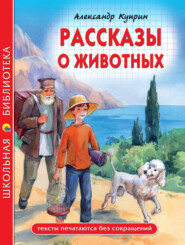По всем вопросам обращайтесь на: info@litportal.ru
(©) 2003-2024.
✖
The Duel
Настройки чтения
Размер шрифта
Высота строк
Поля
“Three small boys found lurching
Got an awful birching
At the parson’s stile.”
Viätkin imitated in quick succession and in the same tone the strophes recited in the remainder of the antiphon at Mass —
“Sexton, parson, and his clerk
Thought the smacking quite a lark.
Then the beadle said, ‘By hell,
Nikifor, you smack right well.’”
“Nikifor, you smack right well!”
answered pianissimo in complete harmony the hastily improvised choir of drunken officers, seconded by Osadchi’s softly rumbling bass voice.
Viätkin conducted the singing, standing on a table in the middle of the room, whilst stretching his arms in an attitude of benediction over the heads of the “congregation.” Now his eyes flashed terrifying glances of threat and condemnation; at another time they were raised to heaven with a languishing expression of infinite beatitude; then he hissed with rage at those who sang out of tune; again he stopped in time by a scarcely perceptible tremolo of the palm of his hand a run to a misplaced crescendo.
“Staff-Captain Lieschtschenko, you’re singing damnably. Damn it, what a wretched ear!” roared Osadchi. “Keep quiet in the room, gentlemen. No noise, please, when there’s singing.”
“Once on a time a farmer so rich —
Who used to like iced punch” —
continued Viätkin, in his improvised service of the Church. His eyes, however, now began to smart dreadfully from the dense tobacco smoke. Romashov was reminded by the wet and sticky tablecloth that he had not washed his hands since dinner. He went out and made his way across the yard to a side room called the “Officers’ Shelter,” which served as a sort of lavatory. It was a cold, dismal little crib with only one window. Several common cupboards stood along the wall, and between them, in hospital fashion, were placed two beds, the sheets, etc., of which were never changed. Not a man in the entire regiment could recollect when this room was swept and cleaned. There was an intolerable stench there, the main ingredients of which were rotting bedclothes, stinking boots, and bad tobacco. The room was originally intended for officers of other regiments who happened to be visiting the garrison town, but it gradually became converted into a sort of morgue for those who got dead drunk at mess. It was almost officially designated as “the mortuary,” which name, by a dreadful irony of fate, received its full justification from the fact that no less than two officers and one soldier had committed suicide in it during the few years the regiment had been garrisoned in the town. Moreover, not a year elapsed without one suicide taking place among the officers of this regiment.
When Romashov entered “the mortuary” he found two men sitting there on a bed near the window. The room was dark, and it was some time before Romashov recognized in one of the “guests” ex-Staff-Captain Klodt, alcoholist and thief, and on those grounds expelled from the command of his company. The other was a certain Ensign Solotuchin – a tall, lean, bald-headed, worn-out rake and gambler, feared and despised wherever he went for his evil, lying tongue and his conversation interlarded with coarse cynicisms and improprieties – a veritable type of the ensigns of the storybooks.
Between these two worthy “birds of a feather” might be seen on the table the dim outline of a schnapps bottle, an empty plate, and two full glasses. The pair of boon companions were silent when Romashov entered the room, and tried, as it were, to hide themselves in the darkness; but when he leaned over them, they looked at him with a sly smile.
“What, in the name of goodness, are you two doing here?” asked Romashov, in alarm.
“Hush!” Solotuchin made a mysterious warning gesture with his forefinger. “Wait here, and don’t disturb us.”
“Hold your jaw!” ordered Klodt in a whisper.
At the same moment the rattling noise of a telega was heard somewhere in the distance. Then the two strangers raised their glasses, clicked them together, and drained the contents.
“But answer me. What is the meaning of it all?” repeated Romashov in the same anxious tone.
“My little greenhorn,” replied Klodt in a significant whisper, “if you must know, it’s only our usual little morning repast; but now I hear the telega, Ensign,” Klodt went on to say as he turned to Solotuchin. “It’s time then to finish our drink and be off. What do you think of the moonlight? Will it suit?”
“My glass is empty already,” replied Solotuchin, glancing out of the window at the moon’s slender, pointed sickle that stood drowsy and sleepy in the sky, and hung down over the little slumbering town. “But let’s just wait a wee bit. S-sh! I thought I heard a dog barking.”
And again they bent towards one another to resume their mysterious conversation, carried on in a low voice; the spluttering tone and evident lack of coherence witnessed clearly enough that the schnapps had begun to take effect. From the salle-à-manger hard by came now and then the melancholy, hollow tones of Viätkin’s and Osadchi’s improvised Mass for the Dead, which had a weird and threatening ring about it in the silent night.
Romashov seized his head with both hands.
“I beseech you, gentlemen, to stop this. I can’t stand it any longer.”
“Go to the devil!” roared Solotuchin. “No, stop, dear boy – whither away? But, by all that’s unholy, you shall first drink a glass with two fine fellows. Catch tight hold of him, Captain, I’ll shut the door.”
With a yell of laughter the two scoundrels jumped up to seize Romashov; but the latter’s self-command was exhausted. The whole hideous situation – this disgusting drinking-bout in the weird, dark room with its insufferable, stifling atmosphere – this mysterious midnight meeting between two individuals who were a danger to society – the vulgar bellowing of the drunken officers and their blasphemous parody of the Russian Mass – all this filled him with frantic terror and nausea. With a piercing shriek, he thrust Solotuchin from him, and, trembling in every limb, rushed deliberately from the mortuary.
Common sense now urged him to go home, but a strange, unfathomable inward force again drove him, against his will, to the mess-room. There some of the wine-soaked company were asleep on the window-sills and chairs. A stifling heat prevailed, and, in spite of the wide-open windows, the drowsily burning lights and lamps were never reached by a quickening draught of air. The poor, dead-tired soldiers who attended to the waiting could scarcely stand on their legs, and every moment stifled a yawn, but as yet none of the champion boozers had entertained a thought of breaking up.
Viätkin had again taken his place on a table, and was singing in his high, caressive tenor voice —
“Swift as the ocean’s
Roaring billows,
Vanishes life in eternity.”
There were several officers in the regiment with really beautiful voices, which even now were very effective in spite of the drink.
This simple, plaintive melody exercised, at this moment, an ennobling influence on all, and more than one of them experienced a pricking, remorseful feeling at the thought of his worthless, sinful life.
“Once you’re in your coffin,
Soon the world forgets your name,”
continued Viätkin in a voice of emotion, and his sleepy but good eyes were dimmed with tears. Artschakovski seconded him with unimpeachable care. To make his voice thrill he grasped his larynx with two fingers and shook it. Osadchi accompanied it all with his heavy, long-drawn, organ notes.
After the singing there reigned a deep silence for a few moments. Suddenly Osadchi began again to recite in a subdued tone and eyes cast down —
“All ye who wander in sorrow’s heavy, narrow road – ”
“No, that’s enough of it,” a voice exclaimed. “This is now, I suppose, the tenth time we have taken up this cursed Mass of Requiem – ”
But the rest had already intoned the solemn melody that divides the recitative of the antiphon, and once more, in the reeking and dirty room, resounded the requiem over St. John of Damascus in clear, full-voiced strains that express in so masterly a way the inconsolable sorrow for death’s inexorable cruelty —
“All ye who believe in Me enter into the joy of My Father.”
Artschakovski, who was as familiar with the ritual as the most experienced choir-singer, at once repeated the following answer in accordance with the text —
“With our whole soul we all praise,” etc.
And so the whole antiphon was chanted; but when Osadchi’s turn came to take up the recitation for the last time, he lowered his head like an infuriated bull, the veins in his neck swelled, and as he directed his melancholy, cruel, and threatening glances towards those present, he declaimed in a half-singing tone, and in a voice that resembled the roar of distant thunder —
“Give, O Lord, Thy departed slave, Nikifor,
A blessed departure hence and eternal rest.”
In the midst of this lofty and pious invocation he stopped short, and, to the horror of the bystanders, uttered two words of the most blasphemous, cynical, and disgusting import.
Romashov jumped up, and thumped his fist, like a madman, on the table.
“Be silent! I forbid this,” he roared in a voice trembling with anger and pain. “What are you laughing at, Captain Osadchi? You ought to be ashamed. Your eyes are mocking, but I see and know that remorse, terror, and the tortures of hell are raging in your heart.”
A hideous silence on the part of all followed this outbreak of temper. Then a voice from the crowd was heard to exclaim —
“Is he drunk?”
These three words relaxed all the terrible tension of the situation; but at the same moment let loose afresh – just as a few hours previously in Schleyfer’s den of infamy – all the evil spirits of orgy. There was shrieking, hooting, stamping, jumping, and dancing; the whole room was turned in a trice into an indescribable, savage, motley chaos. Viätkin, who jumped on to a table, hit his head against the big hanging lamp, which then swayed in awful zigzag curves, producing for some time a fantastic series of dissolving views on the ceiling and walls, on which drunken, frantic human beings were depicted as marvellous, gigantic shapes, or as huddled, dwarfish figures resembling embryos.
Got an awful birching
At the parson’s stile.”
Viätkin imitated in quick succession and in the same tone the strophes recited in the remainder of the antiphon at Mass —
“Sexton, parson, and his clerk
Thought the smacking quite a lark.
Then the beadle said, ‘By hell,
Nikifor, you smack right well.’”
“Nikifor, you smack right well!”
answered pianissimo in complete harmony the hastily improvised choir of drunken officers, seconded by Osadchi’s softly rumbling bass voice.
Viätkin conducted the singing, standing on a table in the middle of the room, whilst stretching his arms in an attitude of benediction over the heads of the “congregation.” Now his eyes flashed terrifying glances of threat and condemnation; at another time they were raised to heaven with a languishing expression of infinite beatitude; then he hissed with rage at those who sang out of tune; again he stopped in time by a scarcely perceptible tremolo of the palm of his hand a run to a misplaced crescendo.
“Staff-Captain Lieschtschenko, you’re singing damnably. Damn it, what a wretched ear!” roared Osadchi. “Keep quiet in the room, gentlemen. No noise, please, when there’s singing.”
“Once on a time a farmer so rich —
Who used to like iced punch” —
continued Viätkin, in his improvised service of the Church. His eyes, however, now began to smart dreadfully from the dense tobacco smoke. Romashov was reminded by the wet and sticky tablecloth that he had not washed his hands since dinner. He went out and made his way across the yard to a side room called the “Officers’ Shelter,” which served as a sort of lavatory. It was a cold, dismal little crib with only one window. Several common cupboards stood along the wall, and between them, in hospital fashion, were placed two beds, the sheets, etc., of which were never changed. Not a man in the entire regiment could recollect when this room was swept and cleaned. There was an intolerable stench there, the main ingredients of which were rotting bedclothes, stinking boots, and bad tobacco. The room was originally intended for officers of other regiments who happened to be visiting the garrison town, but it gradually became converted into a sort of morgue for those who got dead drunk at mess. It was almost officially designated as “the mortuary,” which name, by a dreadful irony of fate, received its full justification from the fact that no less than two officers and one soldier had committed suicide in it during the few years the regiment had been garrisoned in the town. Moreover, not a year elapsed without one suicide taking place among the officers of this regiment.
When Romashov entered “the mortuary” he found two men sitting there on a bed near the window. The room was dark, and it was some time before Romashov recognized in one of the “guests” ex-Staff-Captain Klodt, alcoholist and thief, and on those grounds expelled from the command of his company. The other was a certain Ensign Solotuchin – a tall, lean, bald-headed, worn-out rake and gambler, feared and despised wherever he went for his evil, lying tongue and his conversation interlarded with coarse cynicisms and improprieties – a veritable type of the ensigns of the storybooks.
Between these two worthy “birds of a feather” might be seen on the table the dim outline of a schnapps bottle, an empty plate, and two full glasses. The pair of boon companions were silent when Romashov entered the room, and tried, as it were, to hide themselves in the darkness; but when he leaned over them, they looked at him with a sly smile.
“What, in the name of goodness, are you two doing here?” asked Romashov, in alarm.
“Hush!” Solotuchin made a mysterious warning gesture with his forefinger. “Wait here, and don’t disturb us.”
“Hold your jaw!” ordered Klodt in a whisper.
At the same moment the rattling noise of a telega was heard somewhere in the distance. Then the two strangers raised their glasses, clicked them together, and drained the contents.
“But answer me. What is the meaning of it all?” repeated Romashov in the same anxious tone.
“My little greenhorn,” replied Klodt in a significant whisper, “if you must know, it’s only our usual little morning repast; but now I hear the telega, Ensign,” Klodt went on to say as he turned to Solotuchin. “It’s time then to finish our drink and be off. What do you think of the moonlight? Will it suit?”
“My glass is empty already,” replied Solotuchin, glancing out of the window at the moon’s slender, pointed sickle that stood drowsy and sleepy in the sky, and hung down over the little slumbering town. “But let’s just wait a wee bit. S-sh! I thought I heard a dog barking.”
And again they bent towards one another to resume their mysterious conversation, carried on in a low voice; the spluttering tone and evident lack of coherence witnessed clearly enough that the schnapps had begun to take effect. From the salle-à-manger hard by came now and then the melancholy, hollow tones of Viätkin’s and Osadchi’s improvised Mass for the Dead, which had a weird and threatening ring about it in the silent night.
Romashov seized his head with both hands.
“I beseech you, gentlemen, to stop this. I can’t stand it any longer.”
“Go to the devil!” roared Solotuchin. “No, stop, dear boy – whither away? But, by all that’s unholy, you shall first drink a glass with two fine fellows. Catch tight hold of him, Captain, I’ll shut the door.”
With a yell of laughter the two scoundrels jumped up to seize Romashov; but the latter’s self-command was exhausted. The whole hideous situation – this disgusting drinking-bout in the weird, dark room with its insufferable, stifling atmosphere – this mysterious midnight meeting between two individuals who were a danger to society – the vulgar bellowing of the drunken officers and their blasphemous parody of the Russian Mass – all this filled him with frantic terror and nausea. With a piercing shriek, he thrust Solotuchin from him, and, trembling in every limb, rushed deliberately from the mortuary.
Common sense now urged him to go home, but a strange, unfathomable inward force again drove him, against his will, to the mess-room. There some of the wine-soaked company were asleep on the window-sills and chairs. A stifling heat prevailed, and, in spite of the wide-open windows, the drowsily burning lights and lamps were never reached by a quickening draught of air. The poor, dead-tired soldiers who attended to the waiting could scarcely stand on their legs, and every moment stifled a yawn, but as yet none of the champion boozers had entertained a thought of breaking up.
Viätkin had again taken his place on a table, and was singing in his high, caressive tenor voice —
“Swift as the ocean’s
Roaring billows,
Vanishes life in eternity.”
There were several officers in the regiment with really beautiful voices, which even now were very effective in spite of the drink.
This simple, plaintive melody exercised, at this moment, an ennobling influence on all, and more than one of them experienced a pricking, remorseful feeling at the thought of his worthless, sinful life.
“Once you’re in your coffin,
Soon the world forgets your name,”
continued Viätkin in a voice of emotion, and his sleepy but good eyes were dimmed with tears. Artschakovski seconded him with unimpeachable care. To make his voice thrill he grasped his larynx with two fingers and shook it. Osadchi accompanied it all with his heavy, long-drawn, organ notes.
After the singing there reigned a deep silence for a few moments. Suddenly Osadchi began again to recite in a subdued tone and eyes cast down —
“All ye who wander in sorrow’s heavy, narrow road – ”
“No, that’s enough of it,” a voice exclaimed. “This is now, I suppose, the tenth time we have taken up this cursed Mass of Requiem – ”
But the rest had already intoned the solemn melody that divides the recitative of the antiphon, and once more, in the reeking and dirty room, resounded the requiem over St. John of Damascus in clear, full-voiced strains that express in so masterly a way the inconsolable sorrow for death’s inexorable cruelty —
“All ye who believe in Me enter into the joy of My Father.”
Artschakovski, who was as familiar with the ritual as the most experienced choir-singer, at once repeated the following answer in accordance with the text —
“With our whole soul we all praise,” etc.
And so the whole antiphon was chanted; but when Osadchi’s turn came to take up the recitation for the last time, he lowered his head like an infuriated bull, the veins in his neck swelled, and as he directed his melancholy, cruel, and threatening glances towards those present, he declaimed in a half-singing tone, and in a voice that resembled the roar of distant thunder —
“Give, O Lord, Thy departed slave, Nikifor,
A blessed departure hence and eternal rest.”
In the midst of this lofty and pious invocation he stopped short, and, to the horror of the bystanders, uttered two words of the most blasphemous, cynical, and disgusting import.
Romashov jumped up, and thumped his fist, like a madman, on the table.
“Be silent! I forbid this,” he roared in a voice trembling with anger and pain. “What are you laughing at, Captain Osadchi? You ought to be ashamed. Your eyes are mocking, but I see and know that remorse, terror, and the tortures of hell are raging in your heart.”
A hideous silence on the part of all followed this outbreak of temper. Then a voice from the crowd was heard to exclaim —
“Is he drunk?”
These three words relaxed all the terrible tension of the situation; but at the same moment let loose afresh – just as a few hours previously in Schleyfer’s den of infamy – all the evil spirits of orgy. There was shrieking, hooting, stamping, jumping, and dancing; the whole room was turned in a trice into an indescribable, savage, motley chaos. Viätkin, who jumped on to a table, hit his head against the big hanging lamp, which then swayed in awful zigzag curves, producing for some time a fantastic series of dissolving views on the ceiling and walls, on which drunken, frantic human beings were depicted as marvellous, gigantic shapes, or as huddled, dwarfish figures resembling embryos.

















